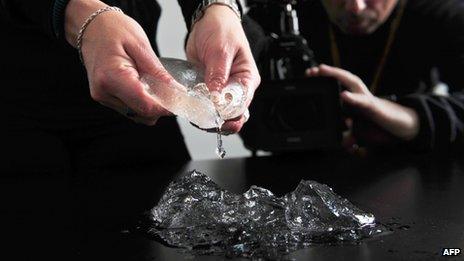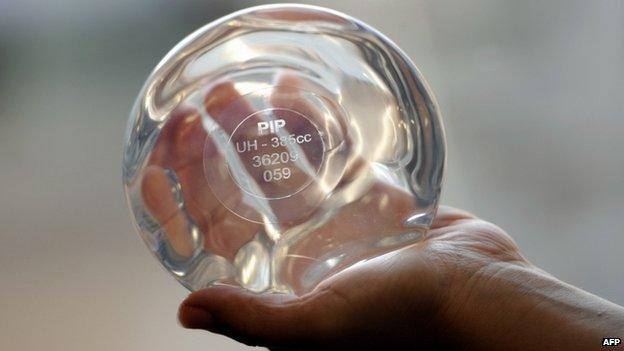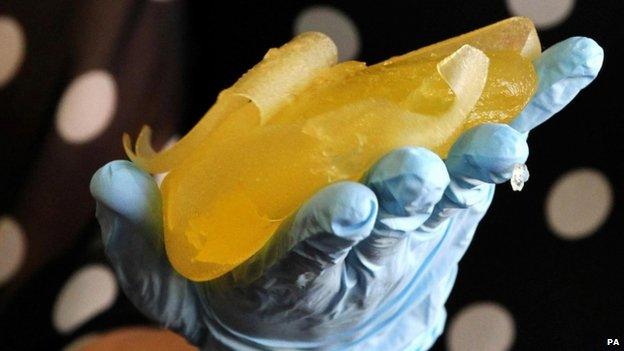PIP breast implant scandal: Compensation ruling upheld
- Published

Some 400,000 women across the world were fitted with faulty PIP implants
A French appeal court has upheld a landmark ruling to grant compensation to some 1,700 women who were fitted with defective breast implants.
Judges said German company TUV Rheinland, which certified the implants, must pay 3,000 euros (£2,470) in interim damages to each claimant.
Last year, the firm was found jointly liable with France's PIP (Poly Implant Prothese) over the global health scare.
The scandal broke in 2010 after many of the implants ruptured.
Jean-Claude Mas, the founder of PIP, was handed a four-year jail sentence and fined 75,000 euros in December.
The court ruled that his company had used sub-standard silicone gel - rather than medical-grade silicone - causing many of the implants to split.
Apart from Mas, four other former PIP executives were convicted and given lesser sentences, in one of the biggest trials in French legal history.
Throughout his hearing, Mas had denied the silicone used was harmful, while all but one of the other defendants said they had not been aware of the risks.
'Victim of fraud'
Tuesday's ruling will be significant for thousands of women worldwide who cannot afford to have their PIP implants removed, the BBC's Christian Fraser reports.
TUV had appealed against having to pay interim damages to victims, until its appeal against the ruling that it shared responsibility with PIP was heard later this year.
Last year, six implant distributors and 1,700 women brought a class action against TUV Rheinland, arguing that anything but a cursory inspection would have found problems.
TUV Rheinland rejected the ruling on the grounds that it was itself a victim of fraud.

The trial of Jean-Jean Mas was one of the biggest in France's legal history, because of the number of plaintiffs
If TUV Rheinland loses its appeal later in the year, as many as 400,000 women worldwide could join the case.
Lawyers are seeking a total compensation of 16,000 euros per victim, opening the company to a potential bill of some 6bn euros.

This is a PIP breast implant with its company identity number

Thousands of PIP implants burst
The health scare came to public attention when the French government recommended that women have PIP implants removed due to an abnormally high rupture rate.
There was confusion as British health authorities said there was no need for routine removal. However, they later agreed to remove the implants to put women's minds at rest.
France's Health Products Agency (ANSM) has to date registered more than 7,500 implant ruptures and 3,000 cases of undesirable effects, mainly inflammations, among the 30,000 women using PIP products in France.
In a report released last June, the ANSM said such incidents tended to be under-reported, and so "the number of women actually explanted may be greater than the number of cases reported to the agency".
When an implant ruptures, the silicone gel filling can leak into the body. Some women will not notice anything at all, and there is no evidence of an increased cancer risk.
- Published10 December 2013
- Published10 December 2013
- Published31 December 2012